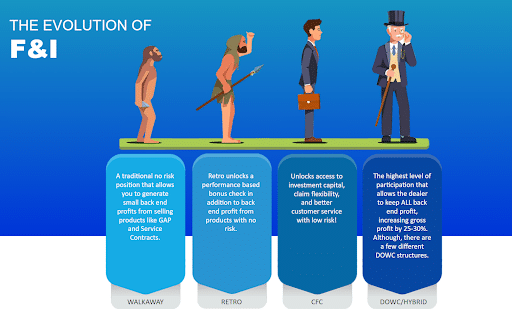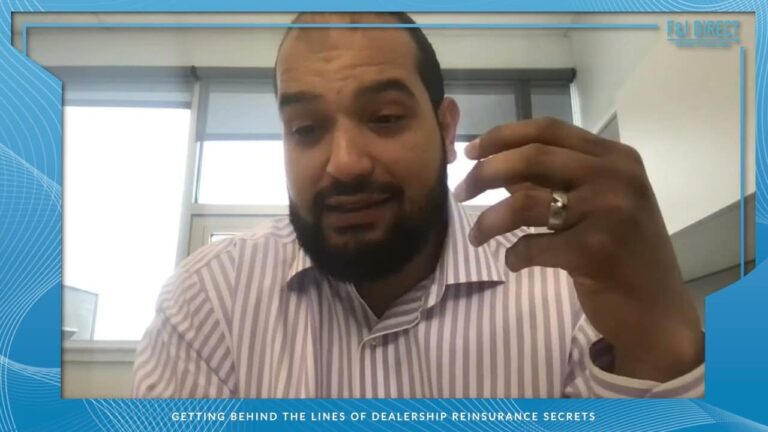Dealerships are facing increasing pressure to maximize revenue and profitability in their finance departments. However, there are numerous ways in which dealerships can be losing money in finance right now. From inadequate risk assessment and pricing of reinsurance policies to poor communication and collaboration between departments, these issues can lead to missed opportunities, errors, delays, and even regulatory or compliance issues. In this context, it is essential for dealerships to identify and address these challenges proactively to ensure long-term financial stability and success. In the following sections, we will explore thirteen specific ways that dealerships may be losing money in finance and highlight potential solutions to these problems.
1. Lack of diversification in the dealership’s reinsurance portfolio, leading to concentration risk and potential losses in the event of a catastrophic event.
Lack of diversification in a dealership’s reinsurance portfolio can lead to concentration risk, which means that a significant portion of their portfolio is exposed to a single type of risk. For example, if a dealership only purchases reinsurance policies for auto theft, and a catastrophic event such as a natural disaster causes widespread damage to the dealership’s inventory, they may not have sufficient coverage to mitigate their losses.
2. Over-reliance on third-party reinsurance providers, resulting in limited control over coverage terms, pricing, and claims management.
Over-reliance on third-party reinsurance providers can pose a significant risk to dealerships as they may have limited control over coverage terms, pricing, and claims management. When a dealership outsources their reinsurance program, they are essentially relying on the third-party provider to manage and administer their policies.
This can be problematic if the third-party provider does not have the dealership’s best interests in mind or if there is a lack of transparency in the provider’s operations.
3. Inadequate monitoring and management of reinsurance claims, resulting in errors, delays, or underpayment of claims.
Inadequate monitoring and management of reinsurance claims can be a significant risk for dealerships. When a customer experiences a loss that is covered by their reinsurance program, it is essential that the claims process is managed effectively to ensure that they receive the coverage they are entitled to.
If a dealership fails to monitor and manage reinsurance claims effectively, it can result in errors, delays, or underpayment of claims. This can lead to financial losses and damage to the dealership’s reputation, as customers may become frustrated with the claims process.
4. Failure to properly account for and report reinsurance transactions in financial statements, leading to regulatory or compliance issues.
Failure to properly account for and report reinsurance transactions in financial statements can lead to regulatory or compliance issues for dealerships. The accounting and reporting requirements for reinsurance transactions can be complex, and failure to comply with these requirements can result in penalties, fines, or legal action.
To mitigate the risks associated with improper accounting and reporting of reinsurance transactions, dealerships should ensure that they have a thorough understanding of the relevant accounting standards and reporting requirements. They should also implement appropriate internal controls to ensure that all reinsurance transactions are properly recorded and reported in accordance with these requirements.
5. Inadequate oversight or training of reinsurance personnel, leading to errors or misconduct in the handling of reinsurance policies or claims.
Inadequate oversight or training of reinsurance personnel can lead to errors or misconduct in the handling of reinsurance policies or claims, potentially resulting in financial losses for the dealership. Reinsurance transactions can be complex, and require specialized knowledge and expertise to properly manage and administer.
To mitigate the risks associated with inadequate oversight or training of reinsurance personnel, dealerships should ensure that they have a well-designed training program in place for all personnel involved in reinsurance transactions. This program should cover the key aspects of reinsurance transactions, including risk assessment, pricing, claims handling, and reporting.
6. Failure to effectively communicate reinsurance terms and policies to customers, resulting in misunderstandings or disputes.
The failure to effectively communicate reinsurance terms and policies to customers can lead to misunderstandings or disputes, which can harm the dealership’s reputation and result in lost business. Customers may not fully understand the coverage they are purchasing, leading to dissatisfaction or complaints when they file a claim. This can result in negative reviews and word-of-mouth, damaging the dealership’s image and potentially causing a decrease in sales. Effective communication of reinsurance policies is crucial to ensure customer satisfaction, maintain the dealership’s reputation, and increase customer loyalty. The dealership should make sure that customers understand the coverage they are purchasing, including any limitations or exclusions, and provide clear and concise documentation of the policy terms. Additionally, dealerships should be transparent about the costs associated with reinsurance policies and ensure that customers are aware of any fees or premiums associated with the coverage.
7. Failure to adapt to changes in the reinsurance market, resulting in missed opportunities or exposure to undue risk.
Failure to adapt to changes in the reinsurance market can result in missed opportunities or exposure to undue risk. The reinsurance market is constantly evolving, and dealerships need to stay up to date with the latest trends and developments to ensure that they are getting the best coverage at the most competitive prices. Failing to adapt to changes in the market can result in missed opportunities to obtain more favorable coverage terms or lower costs. Additionally, not staying up to date with changes in the market can leave dealerships vulnerable to undue risk, such as inadequate coverage or excessive costs. To avoid these risks, dealerships should regularly review their reinsurance policies and compare them to other options in the market. They should also stay informed about changes in regulations and industry trends that may impact their coverage needs. By staying flexible and adapting to changes in the market, dealerships can ensure that they are getting the best possible coverage at the most competitive prices.
8. Lack of transparency in financing terms, leading to customer complaints, cancellations, or legal action.
Lack of transparency in financing terms can have serious consequences for dealerships. When customers are unclear about the financing terms and conditions, they may become dissatisfied with the dealership’s service and may decide to cancel the purchase or take legal action. This can result in lost revenue, damage to the dealership’s reputation, and costly legal fees.
It is important for dealerships to be transparent about financing terms and conditions from the beginning of the sales process. This can help build trust with customers and reduce the likelihood of disputes later. Clear and concise communication, along with documentation and disclosure of all terms and conditions, can help ensure that customers fully understand their financing options and obligations.
9. Inaccurate or incomplete documentation, resulting in delays, additional costs, or missed opportunities for revenue.
Inaccurate or incomplete documentation can be a significant problem for dealerships as it can result in a variety of negative consequences. For example, it can lead to delays in processing transactions, which can impact customer satisfaction and result in additional costs for the dealership. Additionally, inaccurate documentation can result in missed opportunities for revenue, as the dealership may not be able to take advantage of certain financing or insurance options due to missing or incomplete information. Furthermore, inaccurate documentation can also lead to legal issues and disputes, which can be costly and time-consuming to resolve. As such, it is essential for dealerships to have robust documentation processes in place and ensure that all staff are properly trained to accurately and thoroughly document transactions and interactions with customers.
10. Inadequate training or oversight of finance personnel, leading to errors, misconduct, or compliance violations.
Inadequate training or oversight of finance personnel can lead to several issues in the dealership, such as errors in finance and insurance documents, misconduct, or violations of compliance regulations. Finance personnel need to be properly trained in dealership policies and procedures, as well as state and federal regulations that govern finance and insurance transactions.
Without proper training, finance personnel may engage in unethical practices or make errors in financing documents, which can lead to legal action, customer complaints, or financial losses for the dealership. Therefore, dealerships should invest in comprehensive training programs and implement effective oversight mechanisms to ensure that finance personnel adhere to the dealership’s policies and industry regulations. This can help prevent errors, misconduct, and compliance violations, and protect the dealership’s reputation and financial stability.
11. Inefficient or outdated systems and processes, resulting in delays, errors, or missed opportunities.
Inefficient or outdated systems and processes in a dealership’s finance department can lead to significant operational issues. These can include delays in processing transactions, errors in data entry or calculation, missed opportunities for revenue or cost savings, and a general lack of competitiveness in the marketplace. In addition, such inefficiencies can contribute to customer dissatisfaction and lost sales, as customers may become frustrated with slow or confusing financing processes. To avoid these issues, dealerships should invest in modern, efficient finance systems and processes, and provide ongoing training and support to their finance personnel to ensure that they have the skills and tools necessary to operate effectively in a rapidly evolving marketplace.
12. Focusing solely on selling financing products, rather than providing comprehensive financial advice and guidance to customers.
Focusing solely on selling financing products, rather than providing comprehensive financial advice and guidance to customers, can lead to missed opportunities for building long-term relationships and loyalty with customers. Dealerships should strive to offer a range of financial products and services that meet the needs of customers, while also providing education and guidance on topics such as budgeting, credit management, and retirement planning. By taking a holistic approach to financial services, dealerships can position themselves as trusted advisors and build lasting relationships with customers. This can lead to increased customer satisfaction, repeat business, and referrals, ultimately contributing to the overall success and profitability of the dealership.
13. Poor communication and collaboration between the finance department and other departments, resulting in missed opportunities for cross-selling or up-selling.
Poor communication and collaboration between the finance department and other departments can lead to missed opportunities for cross-selling or up-selling. For example, if the finance department is not aware of the sales team’s promotions, they may not be able to offer financing options that align with those promotions. Similarly, if the service department is not communicating with the finance department about customers’ repair needs, the finance team may not be able to offer extended warranty or service contract options. This lack of collaboration can result in lost revenue for the dealership and a poor customer experience. Therefore, it is essential to establish effective communication channels and encourage collaboration between departments to maximize sales opportunities and provide a seamless customer experience.
In conclusion, the finance department is a crucial aspect of a dealership’s success, and avoiding the pitfalls that lead to financial losses is essential. Failing to properly manage reinsurance, inadequate training and oversight, outdated processes, and poor communication are just a few of the ways that dealerships can lose money in finance. Fortunately, help is available. At Fidirect, we offer expert financial services and support to help dealerships maximize profits, minimize risk, and provide exceptional service to their customers. Contact us today to learn more about how we can help your dealership thrive in today’s competitive marketplace.




